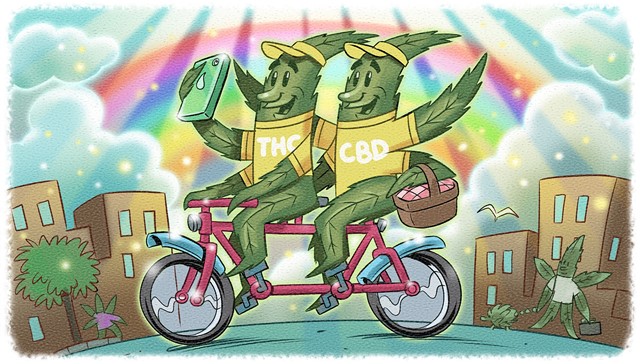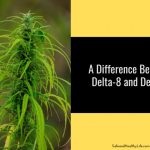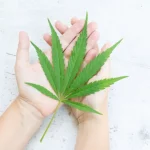
As more and more people are turning to cannabis-based products to make them healthier, we often hear the words CBD and THC bandied around. Thanks to years of conditioning, many people think that CBD is good, and THC is bad, but this isn’t the case.
CBD and THC are actually very similar in their molecular make-up, but there are some fundamental differences between the two.
The cannabis plant has over 100 major chemical compounds found naturally in the plant.
These are called Phyto cannabinoids and CBD and THC are two of the most significant and best understood of these.
The Endocannabinoid System
Both THC and CBD interact with the endocannabinoid system in the human body when it is taken. The body naturally produces endocannabinoids which interact with cannabinoid receptors (known as CB1 and CB2 receptors) in the body, and when CBD or THC is taken it can interact in a similar way.
The endocannabinoid system has only recently been discovered and its main role is to be responsible for the regulation of a number of functions in the body. These include pain, the immune system, mood, appetite, and body temperature.
Many people have deficiencies in endocannabinoids which can lead to health problems, and by taking cannabinoids like CBD and THC, you can build up the cannabinoids in your system, leading to better health.
What is CBD
CBD stands for Cannabidiol and has the molecular formula, C21H30O2. CBD is safe and non-addictive and has a number of important health benefits. It is a potent substance but is not intoxicating, meaning that it can have a strong effect, without making you high.
Although there is still a lot of medical research needed, scientists are getting very excited about the medicinal potential of CBD. We can talk about it is great for boosting our general health and well-being, but there is a lot more potential for more specific problems as well.
Both CBD and THC bind to the CB2 receptors. However, they each react differently to the CB1 receptors. CBD does not actually bind to the CB1 receptors. What it does, is that it affects certain other receptors in the body which work through CB1 receptors – such as:
- GPR55 Receptors (helping to control bone density and blood pressure)
- TRPV1 Receptors (helps to control inflammation, pain and body temperature)
- 5-ht1A Receptor (helps to regulate anxiety, appetite, pain perception, nausea,
addiction and sleep) - PPAR-gamma Receptors (affecting insulin sensitivity, lipid uptake, and dopamine
levels)
What is THC?
There is a common misconception that CBD is medicinal, and THC is recreational. Although high THC marijuana is often used by people who are looking to use it recreationally (in other words, to get ‘high’), THC isn’t only limited to this. It can have medicinal benefits too.
THC stands for Tetrahydrocannabinol and it has the same molecular formula as CBD -C21H30O2. The difference between two, chemically, is where one single atom is placed. It is interesting how, with such a small change between the two substances, they can be so different.
Due to its slightly different molecular structure, THC can bind directly with the CB1 receptors, which then triggers messages to the brain, resulting in the in ‘high’ that we associate with taking cannabis. Interestingly, CBD can actually inhibit these messages and so can have the result of actually lessening the impact of THC in terms of feeling high if they are taken together.
It is because of this high feeling, that THC is illegal in many countries, and not preferable to many people. However, THC can affect the human body in ways which are beneficial to our health. It’s not really the baddy, it’s just a goody which can make you high.
Due to its legal status, it has been difficult in the past for extensive research to be carried out of THC and its medicinal benefits. However, research does show that THC can offer similar effects to CBD, as well as potentially being able to help with Alzheimer’s, deal with nausea, help with pain relief and sleep, is anti-oxidant, anti-bacterial and anti-inflammatory, and can boost appetites amongst others.
CBDs and THCs, go together like Rice and Peas
Instead of looking for the differences between CBD and THC, it is much more interesting to look at what happens when they are taken together. Like many things in life, on their own, they are good but can have more of an impact if they are taken together.
Scientists have found that when THC and CBD are taken together, they can enhance each other’s therapeutic benefits.
This is also true of the other cannabinoids which are found in the plant. In fact, research shows that the closer to a full spectrum of the cannabinoids found in the plant is taken, the more effective the product is.
This is known as the ‘entourage effect’ and you buy this in the aptly named ‘full-spectrum’ CBD oil. Broad spectrum CBD oil will also offer you a good range of cannabinoids –although typically it will have very low levels of THC.
Which brings us on to the other main difference between the two.
The Legalities
Every country in the world and state in the US has its own laws with regards to cannabis-derived products. The world of CBD, THC, and cannabis has changed dramatically over the last few years, and the laws are still catching up – and forever changing!
There are some countries and states where cannabis is completely legal, regardless of THC levels. However, in many places – such as many states in the USA and Europe, there is a distinction made between allowing certain cannabis-derived products, but not others. And this mostly relates to the levels of THC in them.
In many places, products are legal if they have THC levels of under 0.3% or under 0.2%. This allows products to be made using industrial hemp – a strain of cannabis which has been specifically cultivated to have very low levels of THC – giving the public the ability to get the benefits from CBD without the high which THC gives you.
Although this is not necessarily the way to get the most benefit from the cannabis plant, it does at least give you some of them.
When we see parents on the news who are fighting to be allowed to bring medicinal cannabis into the country for their children, it is because they need the THC levels to be higher than legally allowed for medicinal purposes.
Until there are more medical research and a greater understanding about THC, it is unlikely that we are going to see much of a change in the opportunities that we have in taking THC as well as CBD. Although the law places a big difference between CBD and THC, the real value of them both is if they can be taken together.
Of course, other than the legal difference, the main difference between the two is in the fact that consuming THC will make you high and CBD won’t.
At the moment, unless you live in a place where THC is legalized, the best way to legally benefit from cannabis-derived products is through full spectrum CBD products, which use the extract of the whole hemp plant to help you to give your general health a leg up.
About The Author:
The article is written by Karen Asprey from CBD Resource.




![[Infographic] The Surprising Connection Between Gut Health And Your Hair Connection Between Gut Health And Your Hair](https://www.safeandhealthylife.com/wp-content/uploads/2023/10/Connection-Between-Gut-Health-And-Your-Hair-150x150.webp)